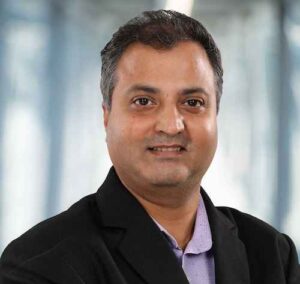- Ayushman Bharat coverage for grassroots healthcare workers and the integration of the U-WIN platform are two further benefits that promote a healthier society: FM Nirmala Sitharaman
- This budget not only clearly advances our goals but also shows how important technology is to improving healthcare and education
India
healthysoch
New Delhi, February 01, 2024:
 Quote on the Announcements made by Finance Minister Nirmala Sitharaman on the Healthcare industry
Quote on the Announcements made by Finance Minister Nirmala Sitharaman on the Healthcare industry
Quote by Vincent Anthony D’souza, Co-founder and CTO in MadVR Solutions :“The government’s goal of expanding medical colleges and making use of the hospital infrastructure already in place is in perfect harmony with our objective of using virtual reality technology to transform surgical education. The focus on preventative healthcare, in particular the campaign to vaccinate young girls against cervical cancer, is consistent with our overarching objective of enhancing patient outcomes and advancing medical education. The all-encompassing strategy for mother and child health care, in addition to the accelerated modernization of anganwadi centres, aligns with our dedication to human-centered design in medical education. Ayushman Bharat coverage for grassroots healthcare workers and the integration of the U-WIN platform are two further benefits that promote a healthier society. This budget not only clearly advances our goals but also shows how important technology is to improving healthcare and education, which creates an environment that is ideal for our cutting-edge virtual reality solutions.”
Quote by Hariharan Subramanian, Managing Director, Siemens Healthcare Private Limited.


In the fiscal year 2024-25 budget, the government revealed an ambitious plan for strengthening the healthcare sector in India. The emphasis on establishing medical colleges within existing hospital infrastructures is game-changing, resulting in a significant rise of healthcare professionals while expanding and enhancing healthcare accessibility across the country.
A notable step was taken towards cervical cancer awareness, encouraging vaccination for young girls, further augmenting our efforts in enhancing the cancer care continuum, and closing the care gap, thereby creating a future without fear of cancer. Extending healthcare coverage under Ayushman Bharat is an inclusive strategy that ensures quality healthcare for everyone, everywhere.
The budget also embraces new technology and promotes digital transformation, setting the path for economic potential and cost-effective, high-quality healthcare services across India. Fostering growth in the MedTech sector while emphasizing on achieving its vision of Atmanirbhar Bharat.
Overall, this budget aims to empower the healthcare sector for a healthier, stronger India.”


However, it’s worth mentioning that some long-standing demands, like GST rationalisation and increased investments in the healthcare sector, needs to be addressed. We anticipate their consideration in the upcoming comprehensive budget.




Dr Kshitiz Murdia – CEO & Co-Founder of Indira IVF on the healthcare segment:“The Interim Budget 2024-25 presented by Finance Minister, Nirmala Sitharaman, has touched upon an important segment of the Indian population in the healthcare outlay – the mother and child. The latest National Family Health Survey-V (NFHS-V) of 2019-21 has called attention to numerous parameters that have reached concerning levels. This includes the total fertility rate (or children per woman) that is at an alarming replacement level of 2.0. Moreover, infant and child mortality rates (per 1,000 live births), delivery care, child vaccinations and vitamin A supplementation, and treatment of childhood diseases in children under age 5 years are yet to reach cut-off levels recommended by World Health Organisation and other global healthcare institutions. The move to expedite the action through Saksham Aganwadi for the benefit of mother and child is an imperative step to improve the health parameters of rural population.
The Finance Minister has also outlined prudent backward integrations and forward progression to support this. The establishment of medical colleges in existing hospitals will work towards adding more medical talent in the country, and bridge the gap of doctor to patient ratio. A natural progression to childbirth is the availability of proper nutrition for development and immunisation. These have been effectively addressed by advancing Poshan 2.0 programme and the U-WIN platform.
Cervical cancer is the leading cause of cancer among women in India, and its vaccination is recommended before the girl child attains puberty to maximise its benefits. Getting protected against the disease through effective immunisation and enabling early detection are two crucial steps that can help us save close to 1,25,000 women every year.
One of the applauding factors was establishing a 1 lakh crore corpus for loans over a period of fifty years which would be interest free. This will encourage innovation and research in the area of medical treatment as well, inciting better clinical outcomes, increasing treatment possibilities in India, and encouraging medical tourism.


Dhaval Radia, Chief Financial Officer (India), ZEISS Group: “We congratulate the government in presenting a forward-looking budget for the fiscal year 2024-25. It is a budget of continuity and trust.


Further, the government’s announcement to open hospitals in all districts is a significant capital expenditure commitment aimed at improving accessibility and affordability of healthcare facilities across India. We are encouraged by this step that will contribute to our shared mission of providing high-quality ophthalmology and micro-surgery equipment throughout India. These medical equipment and lenses will enable millions of life-changing cataract and other critical surgeries in all parts of India.




healthysoch







